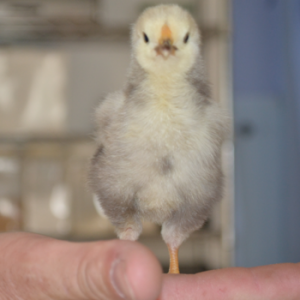Organic vs. Non-Organic Fertilizers for Organic Gardening
Hello, fellow garden enthusiasts in Central Florida! Are you wondering about the dissimilarity between organic and non-organic fertilizers? Well, let’s embark on a conversational journey to understand the key distinctions. In this blog, we’ll explore the benefits of organic fertilizer for organic gardening in Central Florida and shed light on why it’s the way to go for a greener thumb.
In the chicken run the chickens dig and scratch in the grass eating grass seeds and then “depositing them” in a what I call a fertilizer bomb.
This keeps the grass growing. After the pigs have dug up the roots we replace the grass with new organic seeds of grasses that the chickens like to eat.
Composition and Sourcing: Organic Fertilizer:
- Picture this: organic fertilizer is like a wholesome buffet for your plants. It’s made from natural sources such as compost, manure, bone meal, and even seaweed. Mother Nature delivers the goods!
- It’s packed with organic matter, offering a smorgasbord of nutrients and micronutrients. Think of it as a well-rounded meal for your beloved plants.
- These organic materials also come with a bonus: beneficial microorganisms that contribute to healthy soil and root development.
Non-Organic Fertilizer:
- Now, imagine a factory producing synthetic goodies. Non-organic fertilizers are manufactured from synthetic materials and chemicals. It’s like fast food for plants!
- These fertilizers typically contain concentrated forms of essential nutrients like nitrogen, phosphorus, and potassium (NPK). It’s a quick fix, but is it sustainable in the long run?
- Unfortunately, non-organic fertilizers lack the organic matter and beneficial microorganisms that organic fertilizers offer. It’s a bit like a one-time sugar rush instead of a balanced meal.
Nutrient Release and Soil Health: Organic Fertilizer:
- Patience is a virtue, my friends. Organic fertilizers release nutrients slowly over time, ensuring your plants receive a consistent and balanced supply. It’s like a steady stream of nourishment.
- Plus, they work wonders for soil health! The organic matter in these fertilizers improves soil structure, enhances moisture retention, and boosts microbial activity. Think of it as a healthy ecosystem beneath your plants’ roots.
Non-Organic Fertilizer:
- Need nutrients ASAP? Non-organic fertilizers provide quick-release options for hungry plants. It’s like a drive-thru meal—they get what they need instantly.
- However, be wary of potential downsides. The rapid nutrient release can lead to imbalances and salt buildup, potentially harming your soil health over time. It’s a bit like relying on energy drinks instead of a nourishing diet.
One of the reasons we don’t use commercial fertilizers on our farm (besides the obvious) is that we don’t want our animals being poisoned by them.
Not just our farm animals but also our pets who go outside.
Environmental Impact: Organic Fertilizer:
- Organic gardening in Central Florida is all about embracing sustainability. Organic fertilizers play their part by minimizing chemical runoff and water contamination risks. It’s like protecting our beautiful ecosystem.
- They also contribute to reducing greenhouse gas emissions through eco-friendly practices like composting and proper manure management. It’s like a green thumb high-five for the planet!
Non-Organic Fertilizer:
- Unfortunately, non-organic fertilizers can have a negative environmental impact. Nutrient runoff from synthetic fertilizers can lead to water pollution, causing harmful algal blooms and oxygen depletion in aquatic environments.
- Additionally, the manufacturing processes and transportation involved in non-organic fertilizers consume considerable energy resources. It’s like leaving a carbon footprint in your garden.
So, fellow green thumbs in Central Florida, now you know the scoop on organic versus non-organic fertilizers! For your organic gardening journey, I encourage you to choose organic fertilizers that prioritize soil health, sustainability, and long-term productivity. For a wide range of organic fertilizers and expert insights, visit AProperFarm.com.


